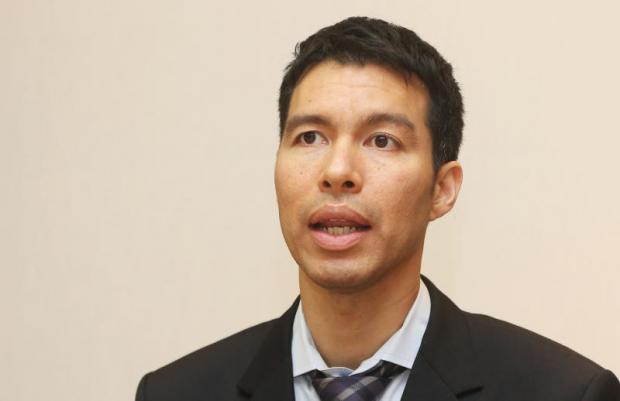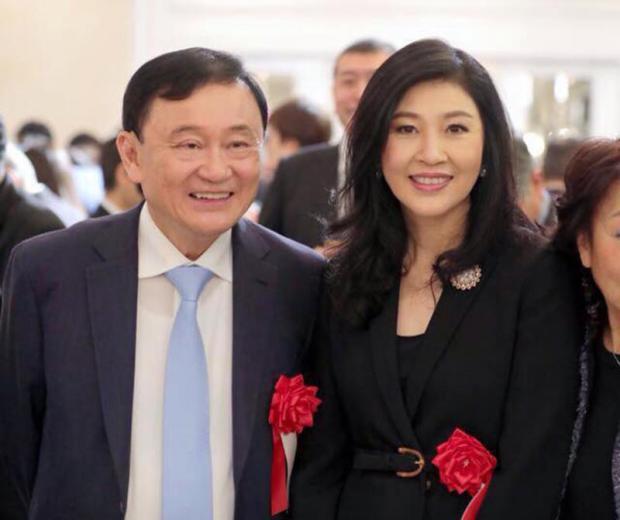The Election Commission (EC) remains under the microscope as the poll delay saga drags on with no end in sight.

Jarungvith: Maintains 'inclusive' stance
Technically, the EC is powerless as it cannot set a poll date until a royal decree declaring an election is announced.
When the decree is published in the Royal Gazette, the commission will have five days to determine the election date.
Without the royal decree, the original tentative date of Feb 24 is close to being dead on the grounds of technicality, as the EC needs 45 days to prepare for an election.
A source at the EC said that the next possible date for the poll is March 10 -- but considering the 45-day requirement, the date may be pushed back further as the royal decree on the election remains elusive.
Some critics have said the current team of poll commissioners is facing perhaps the toughest challenge in organising an election in the country's history. The election system has been streamlined from the inside out and MP allocations -- especially in the party list-method -- are almost certain to cause massive headaches, to say the least.
A political source said that to ease the pressure from the repeated delays, the EC may have to take up the issue with the National Council for Peace and Order (NCPO).
The source said the EC-favoured date of March 10 may be too early for the regime, which reportedly prefers the poll to be held on March 24.
Meanwhile, the political mercury is expected to surge with anti-regime groups reiterating their demands for a poll date to be fixed immediately. They even threatened to hold a protest if the issues surrounding election remain unresolved.
Furthermore, there is also the contentious issue of whether the 150-day election deadline includes the EC's endorsement of the poll results.
While the EC maintains that the deadline covers the endorsement of the results, the constitution's drafters say that it means the poll must be held within 150 days.
EC secretary-general Jarungvith Phumma insisted that while the election date has yet to be announced, EC commissioners firmly stand by their "inclusive" stance.
He said the EC plans to hold the elections and announce the results by May 9, the last day of the 150-day deadline.
A source in the EC said that legal officials and those responsible for managing the elections agree with former commissioner Somchai Srisutthiyakorn's opinion that the poll results should be announced within the 150-day time frame.
While the EC is authorised to set the poll date, the government is responsible for announcing the election results. The EC is required to set the date within five days of the election being decreed in the Royal Gazette.
According to Mr Jarungvith, March 17 is unlikely to be set as voting day because the TCAS tests for students eyeing university placements are scheduled for March 16-17. If the elections are held on March 17, scores of eligible voters may not be able to cast their ballots.
The EC's secretary-general also said that the government has not coordinated with the EC about the details of the general election, except for matters that relate to the coronation ceremony.

Jade: Has election verification worries
Time crunch imperils PM vote
The fuss being kicked up over when the election materialises may be concealing a more important issue -- the validity of the parliamentary vote to decide the next prime minister, according to a source with knowledge of the matter.
As frustration from the anti-regime camps over the elusive election date has multiplied, fear is also building over the legitimacy of the vote among MPs to select the next premier.
Academics have noted that if the poll is held on March 24, the Election Commission (EC) will have less than 60 days to endorse at least 95% of the vote. Under the constitution, parliament must convene within 15 days of at least 95% of the poll results being announced.
The rush will mean that time is not on the EC's side. The agency will be hard-pressed to sort out complaints against successful candidates who won seats. These MPs will have to perform their first crucial task soon after the election, and that is to raise their hands in parliament to support a candidate to be the next prime minister.
But, the source asked, "What if MPs who voted for a prime minister in parliament are later found by the EC to have committed poll fraud, for example?"
Will the votes cast by the MPs for a prime minister need to be recounted? An even more distressing question is whether the premiership votes cast by disqualified MPs will be dropped.
That could imperil the position of the prime minister. If many MPs are disqualified, another round of voting for prime minister may be necessary, and there is no guarantee the person chosen in the first round would make the cut again.
Jade Donavanik, chairman of the Faculty of Law at the College of Asian Scholars, yesterday said that the EC will have only 47 days to endorse the results based on the March 24 poll date.
In light of this, the EC may have little time to investigate election law violation cases and issue yellow or red cards to election candidates and poll winners who violated regulations.
This will put the EC under close scrutiny and raise questions about the EC's efficacy in investigating poll fraud complaints.
In this election, the EC is authorised to disqualify election candidates and poll winners who violate election regulations.
With just 45 days, instead of 60, to work, it may not finish the probes and may be forced to endorse the winning candidates and continue with the investigations later.
According to the source, this could lead to legal and technical complications if some winners are later disqualified by the EC, after participating in the vote for prime minister.
Poll winners who are disqualified after being endorsed will be given orange cards, which means the fraud allegations against them will be heard and settled in court.
If the court rules against them, they will be barred from contesting elections for a year.
In the case of the winners being disqualified, the EC will have to recount the tallies and reallocate the House seats under the party-list system.
The EC will have a hard time convincing the public of the transparency and credibility of its work, even though the formula used in calculating the House seats is stipulated in the law.
According to political observers, the upcoming election contest will be fiercer than ever and the poll results will be highly scrutinised as a result of the "every vote counts" rule set out by the Constitution Drafting Committee.
"And not only will losing candidates challenge the results, winners may also do so to ensure their parties get the most possible votes for use in calculating the party-list seats," said the source.

Thaksin: Starts 'Good Monday' show
Thaksin keeps prodding govt
Living in self-imposed exile after fleeing the country to escape a Supreme Court conviction against him, ousted prime minister Thaksin Shinawatra has constantly made the most of mass media, and particularly electronic media, to communicate with his supporters, including young people.
In his latest move, Thaksin last Monday introduced his new programme, Good Monday, on the changing global landscape for audiences on his official website, www.thaksinofficial.com
"Having spent 12 years abroad, I've seen development and regression in other countries. I would like to share the experiences with all Thais every Monday," he said on Twitter and his website.
His debut podcast advised Thais to prepare for the consequences of the global economic slowdown which, he said, will come later this year and continue into next year.
The former prime minister also hoped Thais would be well trained to cope with a new era when robots will play a greater role in every sector and everywhere, including rice fields.
"Thais should be trained to be their boss. Don't sit back and wait for the robots to rob our jobs from us," he said.
"My principle is 'don't run away from it, embrace it'," he said.
A businessman-turned-politician, Thaksin is endowed with marketing acumen and can apply it to his political career effectively, observers noted.
Thaksin often takes to Facebook and Twitter to engage in wars of words with members of the regime, with Deputy Prime Minister Prawit Wongsuwon seeming to be his favourite target.
The Good Monday programme appears to be designed to reach out to a wider audience, including people in younger generations, according to observers.
"The use of podcasts by Thaksin is nothing but a move to discredit the NCPO [National Council for Peace and Order]," a source said.
"It is a mind game intended to get on the nerves of the regime as well as to seek political gain in the face of the regime which remains a dominant force in Thai politics."